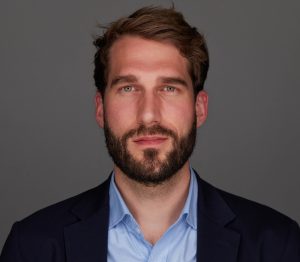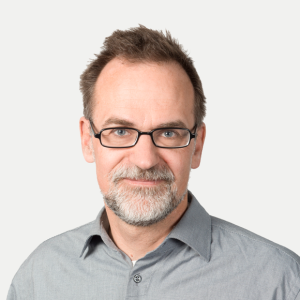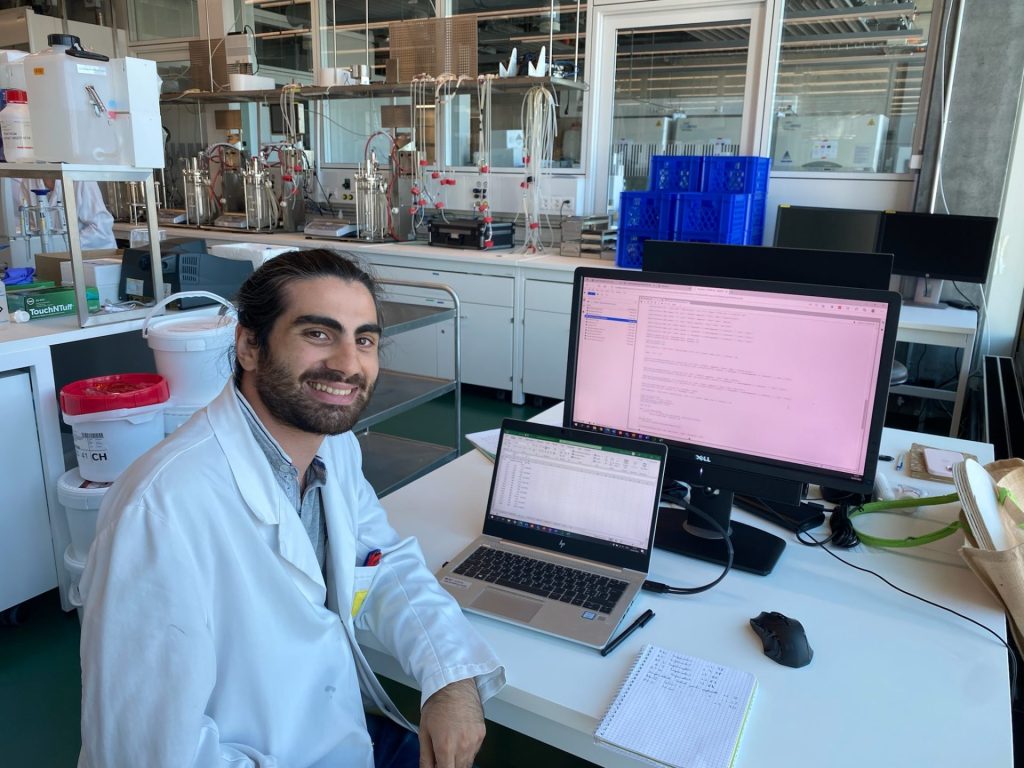
Arrivederci, amici! Exchange students from Palermo talk about their time at FHNW
 Verified listing
Verified listing
- News
- prev
- next
- prev
- next
News article
Vittorio Cascio and Thushanth Lambotharan recently wrapped up their Master Theses at FHNW through an international exchange with the University of Palermo. They told Biotechnet about their research and shared their impressions of Switzerland with us.
Vittorio Cascio, Master’s Student
Development of a platform to produce adenoviral vectors (AVV) for gene therapy
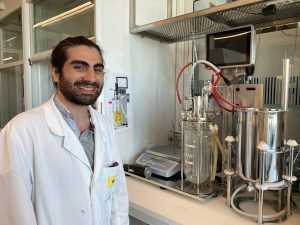
Vittorio was looking to gain experience abroad and knew other students from Palermo University who had recommended the exchange program at FHNW. “I wanted to come to Switzerland, where I could explore practical applications of my knowledge,” explains Vittorio.
During his time in in Muttenz, just outside of Basel, he developed a AVV production process using HEK293 suspension cells. The big challenge was the lack of literature on the subject, he says.
“I had to take a highly experimental approach, accept when things did not work, and dig into my creativity. It often felt like I was working in the dark, and I had to focus on not becoming discouraged.”
He kept his eye on the goal of advancing knowledge of suspension processes that can be used to produce life-saving gene therapies.
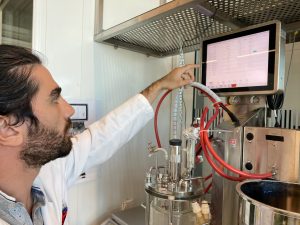
Though he felt he lacked hands-on knowledge at the beginning, he quickly learned about the equipment, methods, and techniques he needed to move forward. Accessing advice from PhDs and other master’s students in the lab helped him build confidence. He found the Bioprocess Technology Research Group at the FHNW, which was mostly made up of Swiss students, to be kind, and was happy to go for beers with them at the end of the week. Communication with his supervisor Apolline Helfer, who is from France, was easy and he would like to thank her for her support.
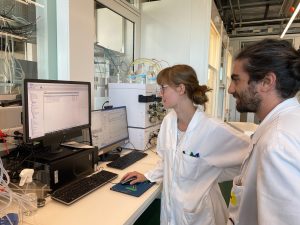
And what about his impressions of Switzerland? “I got lucky when it comes to timing,” he says. “The pressures of the pandemic where not as intense in 2021 and I was able to benefit from going out, for example to the incredible museums that Basel has to offer. Tip: they are free on Sundays,” he laughs.
Vittorio lived in a building that hosts students from different universities or who are doing internships in Basel. It was an international crew, and he enjoyed the cultural exchanges that living there made possible. “Our BBQs near the Rhein were a highlight,” he says.
Looking to the future, he mentions other students from Palermo who stayed on and got jobs in Switzerland, and says he has similar plans. He’s applied for several positions and has started interviewing. Is a PhD on the horizon? “Not for the moment,” he says smiling.
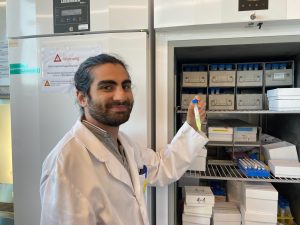
Thushanth Lambotharan, Master’s Student
Optimizing the expression of reagents in immunoassays for plant diagnostics
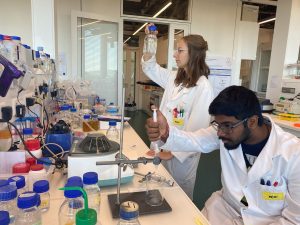
Is Thushanth a plant doctor? Not exactly, he says. “I came to the FHNW to work with Georg Lipps in the Proteins and Enzymes group. My project involves engineering the cellular expression of molecules needed in diagnostic kits that are used to detect plant viruses.” His project is of interest to the Swiss agricultural industry, and he completed his Maters Thesis working with an industrial partner.
Thushanth was interested in broadening his network, gaining international experience, discovering how people in other countries work, and generally, “getting outside my bubble”. At the FHNW, he was able to put many years of theoretical studies into practice and says his experience in the labs there was very comprehensive.
When asked about the challenges, he says the workload was intense, especially because it was an industrial project.
“Companies have expectations about timelines and deliverables, which is completely normal. And of course it’s research, so things don’t always go as planned. If you don’t try out enough things, you might not find the right answer to the problem, but cells take time to grow, and I didn’t have unlimited time. So I had to find the balance between these two elements.”
Doing his Masters at the FHNW led to scientific and professional growth, says Thushanth. “The hands-on experience put into perspective what I had previously learned, and attending seminars exposed me to the perspective of other researchers. I greatly enjoyed the project, and it confirmed my passion for working on proteins.”
With relatives living in the Zurich area, he says he could get a sense of home when he needed, all while being away from home when living in Basel. “The city has a lot of cultural stuff to offer and I enjoyed taking advantage of it.”
The multicultural research group at the FHNW was also a highlight for him. “We had students from Spain, Costa Rica, Cameroon, Germany and of course Switzerland and despite those different backgrounds, it was easy to communicate.” His supervisor Jasmin Föhr played a leading role in helping him across the finish line. Despite the workload, he would recommend the experience to other students considering an exchange at FHNW.
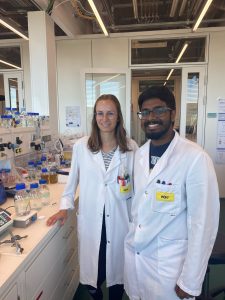
What are his next steps? “Working in industry is an option. I’m open to different applications, as long as they are focused on proteins. I’d like to see the products I’m working on deployed in the world, making a difference out there and not just being a theory.” Like Vittorio, Thushanth is not currently planning a PhD. “It might actually be easier for me to access the job market without a PhD,” he says.
*** Members of Biotechnet, such as the FHNW, HES-SO and ZHAW universities of applied sciences, offer exchange programs and cultivate relationships with post-secondary institutions in other countries, such as Palermo University in Italy and MCI in Austria. Each year, Biotechnet organizes a summer school with these organizations to allow students from across Europe to network with each other and gain a broad overview of the biotech field from leading professors across multiple universities.
Published
- 2 September 2022
